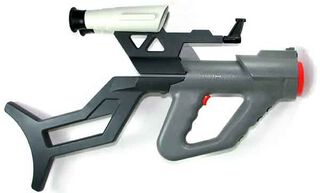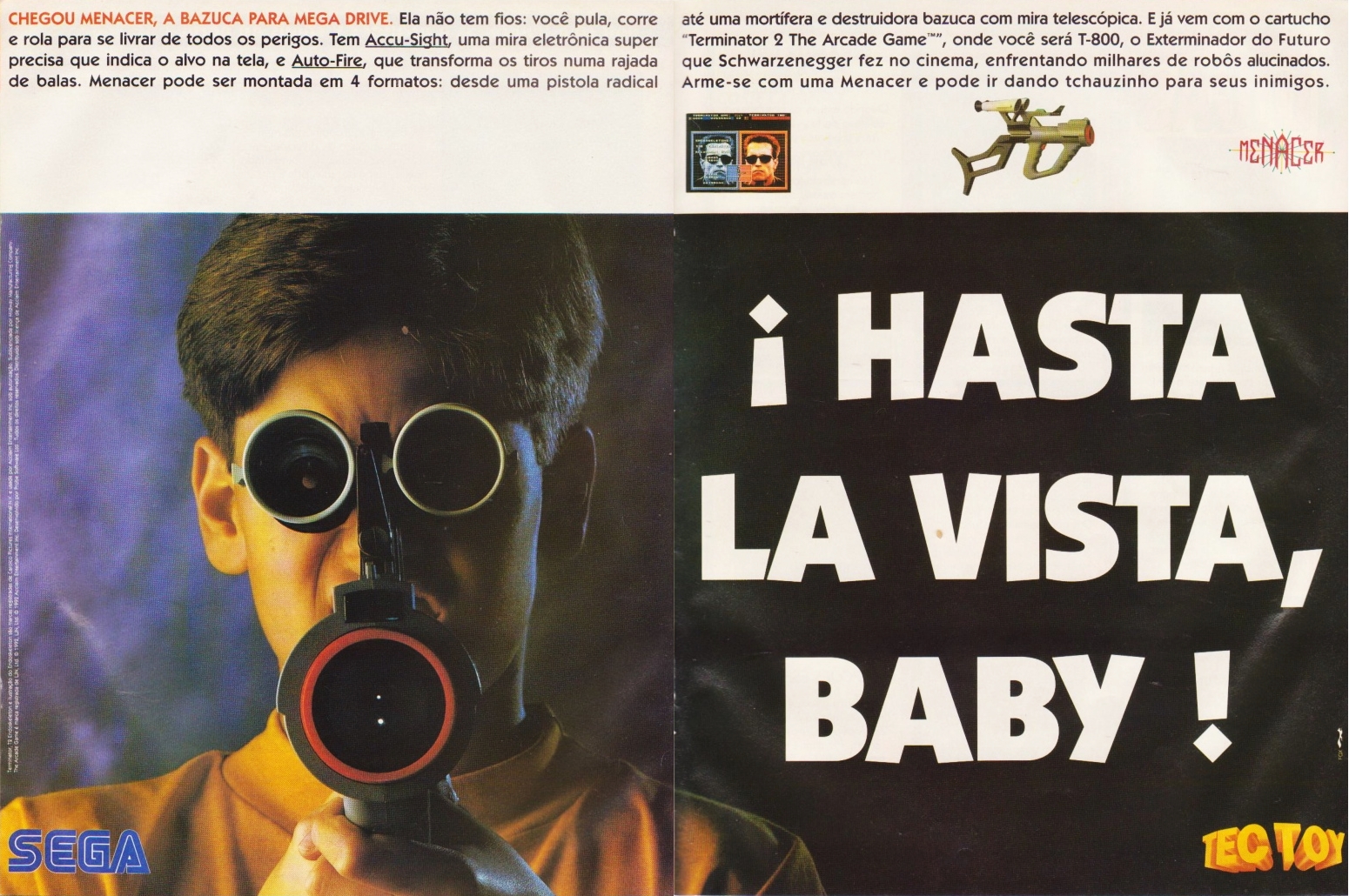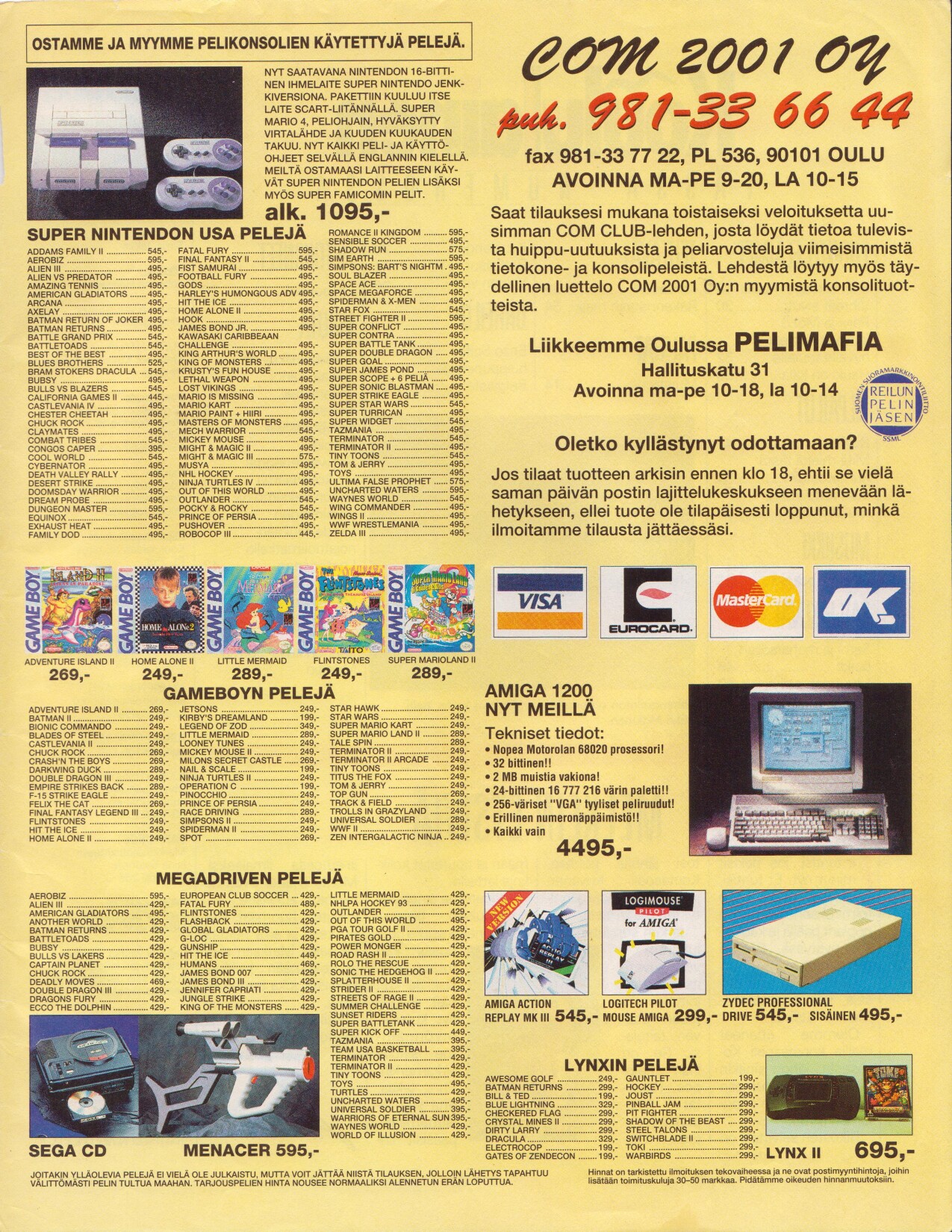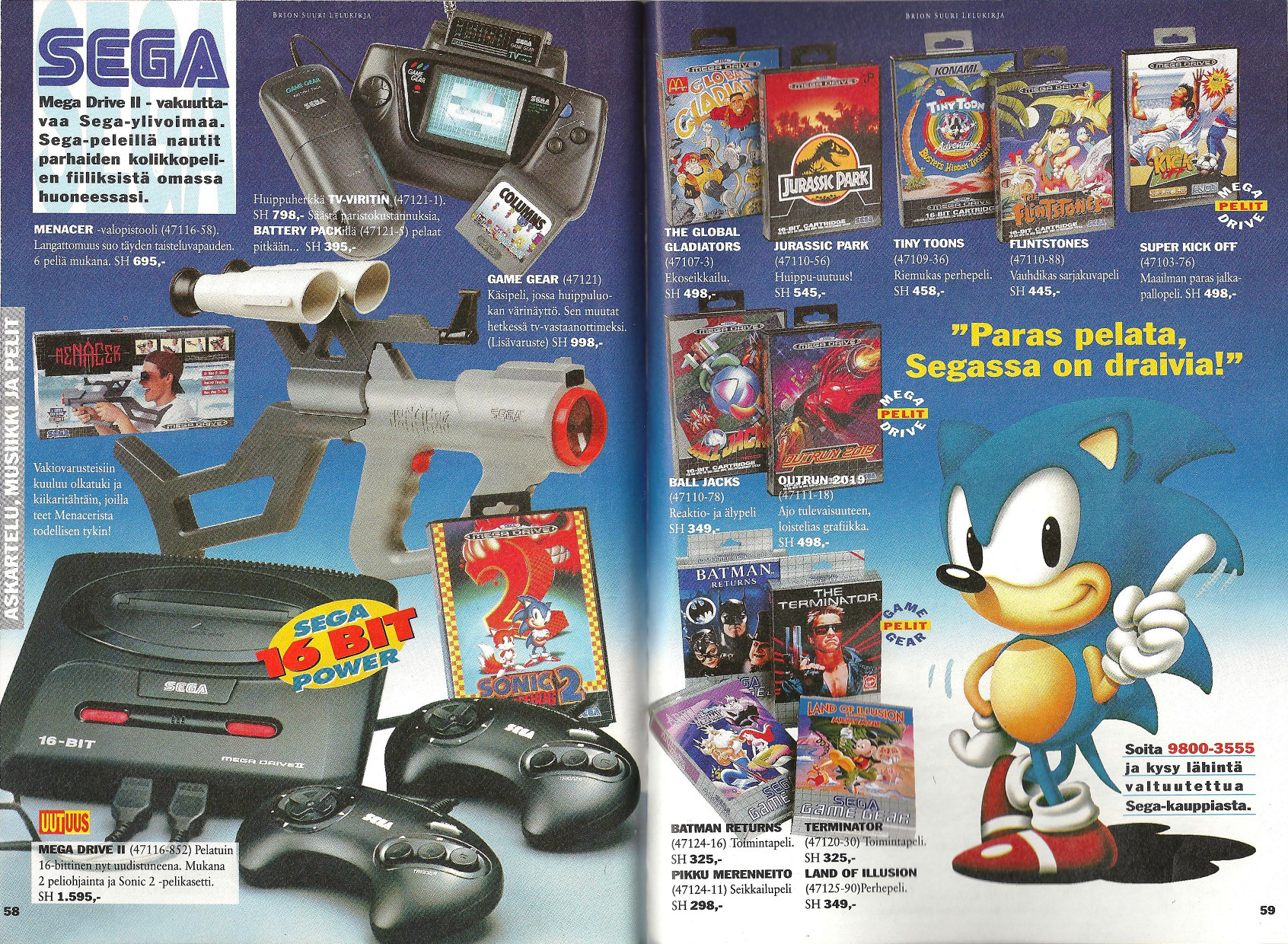Menacer
From Sega Retro

| |||||||||||||||||||||||||||||||||||
| Menacer | |||||||||||||||||||||||||||||||||||
|---|---|---|---|---|---|---|---|---|---|---|---|---|---|---|---|---|---|---|---|---|---|---|---|---|---|---|---|---|---|---|---|---|---|---|---|
| Made for: Sega Mega Drive | |||||||||||||||||||||||||||||||||||
| Manufacturer: Sega | |||||||||||||||||||||||||||||||||||
|
The Menacer is a wireless lightgun created by Sega for the Sega Mega Drive video game console in 1992, as a response to the Super Scope by Nintendo.
Contents
Design
The Menacer is made up of three interconnected sections. The main section alone can be used as a pistol. A skeletonized shoulder stock can be added for extra support. The third removable section are twin sights that are clipped on to the top of the barrel. The twin sights are often seen as impractical, as one can not effectively see what one was shooting at.
The Menacer is powered by 6 AAA batteries and is not connected by a wire to the console but by an infrared beam that relays signals to a receiver box that would ideally sit on top of the television. The receiver box has to be plugged into the console in the second controller port. Advertised as "the most accurate light gun ever," the Menacer retailed for $100 in North America.
Since the Menacer uses scan lines to determine where the user is aiming, it will only work with CRT-based television sets. It also won't work with frame grabber cards or TV tuners that redirect the output to a computer screen. The Menacer is not compatible with all lightgun games - most notably Lethal Enforcers, which requires Konami's own Justifier gun.
Compatible games
Mega Drive
- Body Count (1994)
- Menacer 6-Game Cartridge (1992)
- T2: The Arcade Game (1992)
Mega CD
- Corpse Killer (1994)
- Crime Patrol (1994)
- Mad Dog II: The Lost Gold (1994)
- Mad Dog McCree (1993)
- Who Shot Johnny Rock? (1994)
Photo gallery
Magazine articles
- Main article: Menacer/Magazine articles.
Promotional material
also published in:
- Game Informer (US) #8: "January/February 1993" (199x-xx-xx)[8]
- Sega Visions (US) #11: "February/March 1993" (199x-xx-xx)[9]
also published in:
- Mega Force (PT) #3: "Agosto 1993" (1993-0x-xx)[10]
Patents
Physical scans
| Sega Retro Average | |||||||||
|---|---|---|---|---|---|---|---|---|---|
|
| 96 | |
|---|---|
| Based on 1 review | |
| Mega Drive, US (with T2: The Arcade Game) |
|---|
| Mega Drive, FR (with T2: The Arcade Game) |
|---|
References
- ↑ 1.0 1.1 GamePro, "December 1992" (US; 1992-xx-xx), page 46
- ↑ Game Informer, "November/December 1992" (US; 1992-1x-xx), page 39
- ↑ 3.0 3.1 GamePro, "January 1993" (US; 199x-xx-xx), page 216
- ↑ VideoGames & Computer Entertainment, "January 1993" (US; 199x-xx-xx), page 28
- ↑ Mean Machines Sega, "January 1993" (UK; 1992-12-28), page 82
- ↑ Computer Trade Weekly, "" (UK; 1992-11-23), page 18
- ↑ Computer & Video Games, "March 1993" (UK; 1993-02-15), page 15
- ↑ Game Informer, "January/February 1993" (US; 199x-xx-xx), page 32
- ↑ Sega Visions, "February/March 1993" (US; 199x-xx-xx), page 8
- ↑ Mega Force, "Agosto 1993" (PT; 1993-0x-xx), page 67
- ↑ Joystick, "Janvier 1993" (FR; 199x-xx-xx), page 230


















